Disc brakes: UCI calls on CPA to 'respect the democratic process'
War of words continues between governing body and riders' association
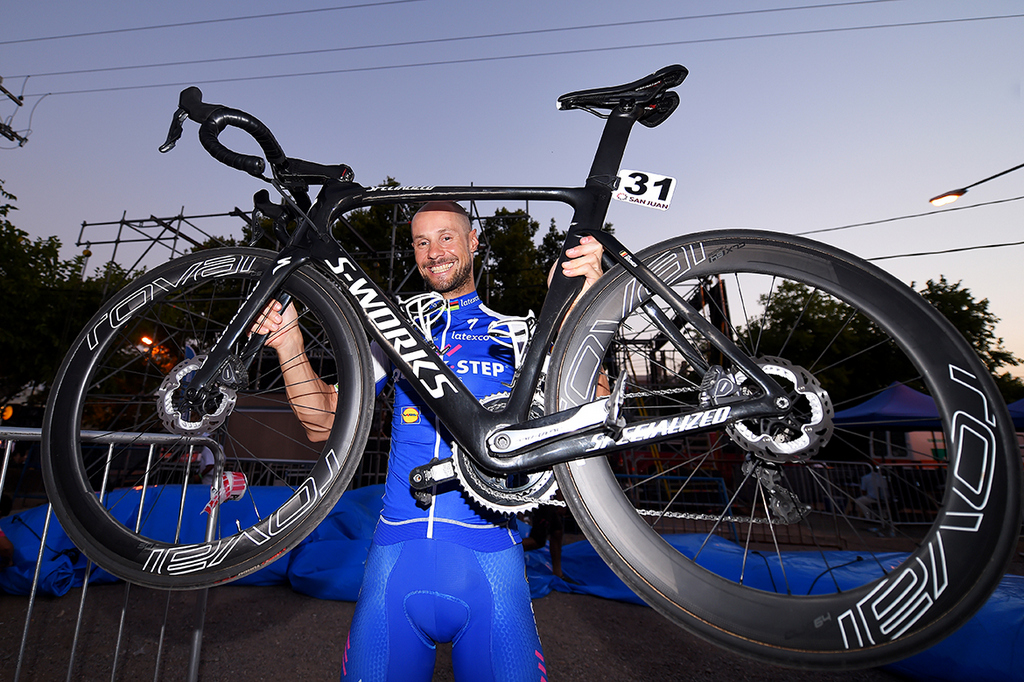
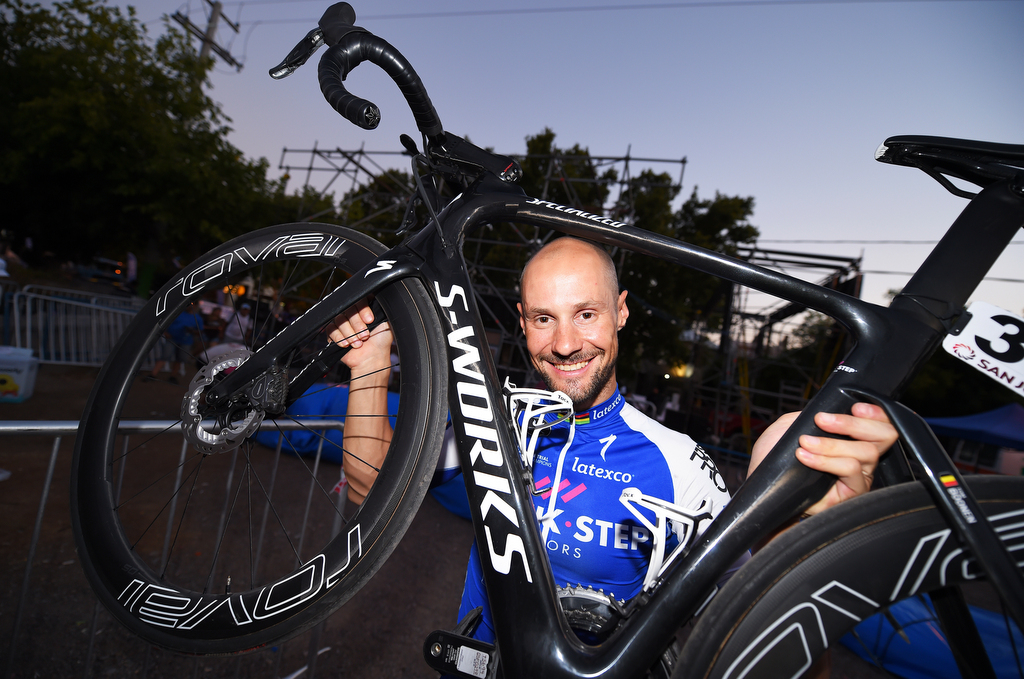
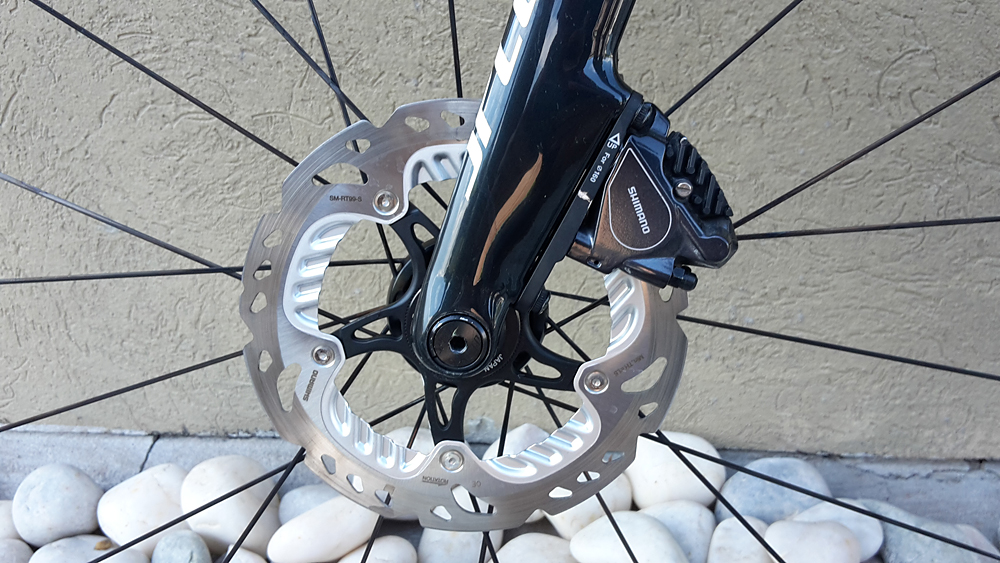
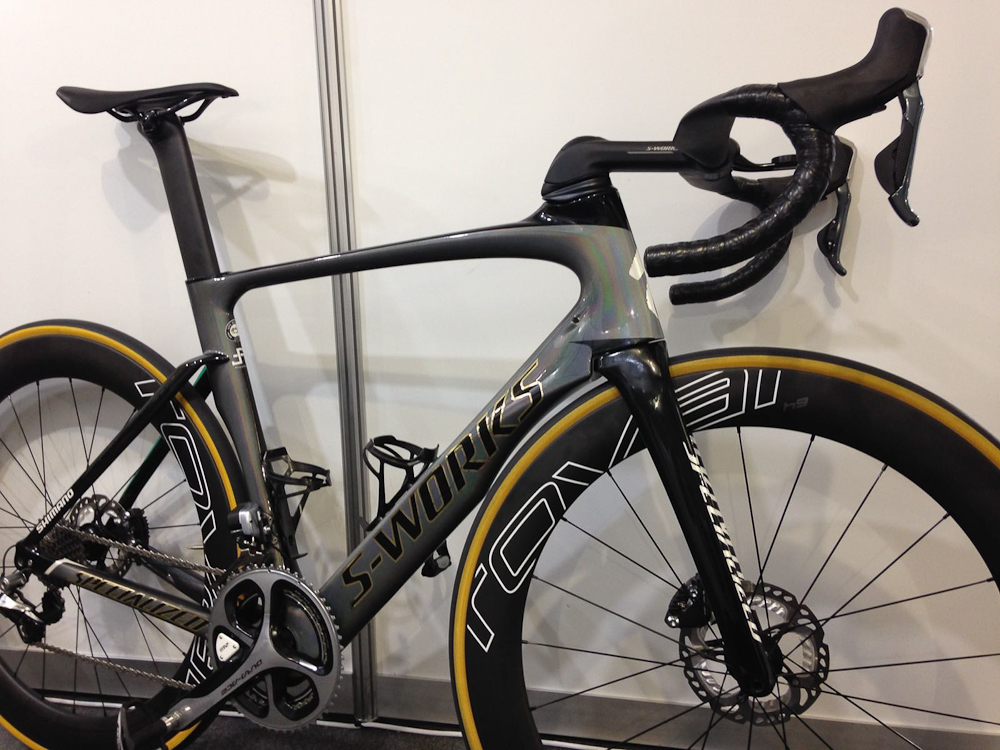
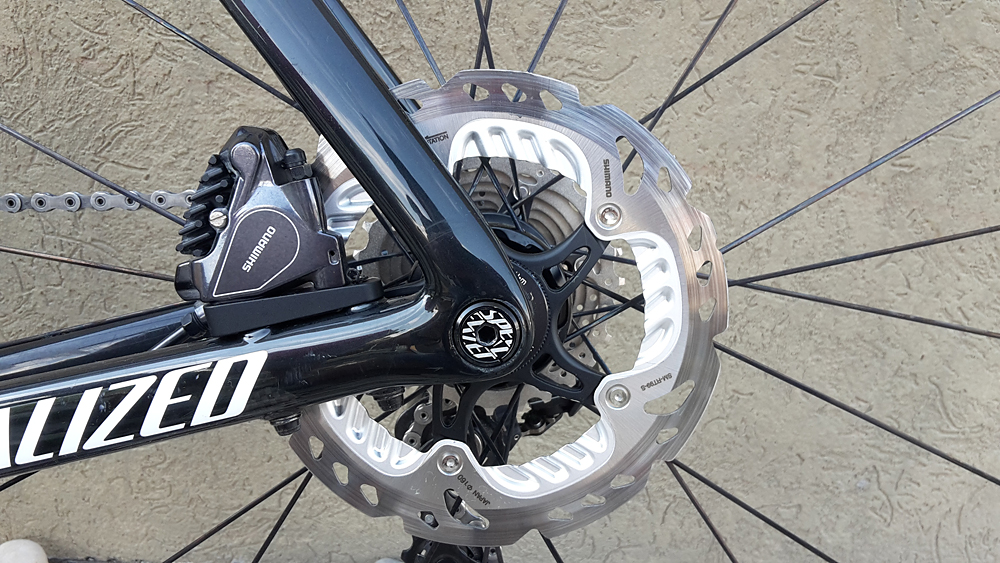
The UCI has responded to the CPA’s call for a second ban on disc brakes, urging the riders' association to ‘respect the democratic process’ in which they were involved in negotiating the reintroduction of discs in the pro peloton this season.
Disc brakes to return to road racing in 2017
Kittel disc brake success sparks debate in the Dubai Tour peloton
Disc brake debate reignites as CPA set to clash with UCI
Riders demand UCI ban disc brakes until complete peloton trial is held
Cannondale-Drapac to be first full WorldTour team on discs at Ruta del Sol
Wholesale use of disc brakes in pro peloton is inevitable, says Pozzato
Cyclingnews has seen a copy of the UCI’s written response to the letter sent by the CPA (Cyclistes Professionels Associés) last week, in which CPA president Gianni Bugno complained that conditions requested by the majority of the pro peloton had not yet been met. Signed by Mark Barfield, president of the UCI equipment commission, it is a message of staunch self-defence, which questions the legitimacy of the CPA’s claims that the majority of pros are against the re-trial of disc brakes in its current format.
The UCI also sets out its position on the issue of mixed braking systems in the same peloton – the central tenet of the CPA’s complaints. It does not share the concern, arguing that the fears are 'generally unfounded’ and that most of the riders it has heard from have been favourable to the re-trial of disc brakes.
The UCI will clearly not be paying immediate heed to the calls for the re-trial to be halted, or to those for a full ‘all-on-discs’ trial later this season, though the issues will be discussed at its next equipment commission, due early spring, where the CPA will be able to present its survey and substantiate its arguments in more detail.
The UCI expressed its 'extreme' surprise at reading the CPA’s claims it was unaware of and indeed unhappy with the details of the reintroduction of the disc brake trial at the start of this season.
- Kittel disc brake success sparks debate in the Dubai Tour peloton
- Dubai Tour: Kittel savours his first win on disc brakes
- Marcel Kittel's custom Specialized S-Works Venge ViAS disc – Gallery
- Neutral Support companies brace for disc brake mayhem
- Are road disc brakes dangerous?
The CPA wrote last week that: "On the one hand the UCI asks for the opinion of the riders on the start of the test, and on the other it seems that in some way the tests are going ahead anyway, with the use of new technologies by some riders and regardless of what we are discussing."
Get The Leadout Newsletter
The latest race content, interviews, features, reviews and expert buying guides, direct to your inbox!
The UCI, however, insists it has been completely clear on the matter and has gone to great lengths to involve the CPA and other stakeholders in the process. In fact, it feels the CPA has suddenly changed its position, and called on the body to respect the outcome of what it had itself had voted on and helped approve.
The letter details the nature of the negotiations for the reintroduction, which first took place in June after the original 2016 trial was halted in April when Fran Ventoso suffered a serious gash to his leg. A key meeting took place in Bern on the second rest day of the Tour de France, where Barfield made a presentation to the CPA, the AIGCP (cycling teams association) and the World Federation of the Sporting Goods Industry, looking at rounded discs, protective casings and braking speeds.
All parties provided a letter of approval for the re-trial, and the UCI duly announced the new disc brake trial on October 13, with the only stated modification being the rounding of the rotors to prevent cuts in the event of crashes.
Cyclingnews understands that it was a month later that the CPA first formally tabled their objection to the so-called ‘mixed peloton’, after voices were heard at a steering committee at the end of October. Later in November it sought to canvass opinion from the whole peloton, and the majority responded that they weren’t happy with the trial that had been proposed. The other condition that was requested was the protective casings, technology which is currently being developed but not yet ready.
That was all communicated to the UCI at the start of December, and the CPA says it didn’t expect the governing body to allow riders such as Tom Boonen and Marcel Kittel to try out disc brakes in January races. The body feels its demands fell on deaf ears at the first in a new monthly series of disc brake working groups, and they upped the stakes last week with their letter, though the UCI is clearly on a different page.
Survey
The CPA insists it has no agenda of its own but is simply acting as a voice for the majority of the pro peloton. Its stance is based on a survey it conducted in November last year, which found that the majority of riders were against the reintroduction of disc brakes in the form proposed by the UCI.
The UCI, however, cast doubt on the CPA’s mandate, questioning the legitimacy of the survey. Barfield suggests the questions were in some way biased, and not designed to take into account changes in opinion over time. It is also said that the CPA didn’t pass on to riders the entirety of information the UCI had provided to them over the course of the negotiations.
Cyclingnews has obtained the questions the CPA put to riders, including the results, with 16.38 per cent agreeing with the start of the disc brake test even if the conditions were not respected. A total of 42.31 per cent did not agree with the test unless all conditions were met, while 40.87 per cent did not agree with the test under any circumstances, even if all the conditions were met.
Mixed peloton
After questioning the legitimacy of its survey, Barfield also questioned the logic of its central conclusion – that mixed braking systems pose a safety threat.
Some feel that the more responsive braking offered by discs would lead to discrepancies between braking times at important moments such as corners or hazards.
“I think it would have been better if either everybody or nobody uses them. Discs allow you to brake much later before a corner and so there could be a danger due to the different braking times of riders,” Movistar’s Daniele Bennati recently told Cyclingnews. "It’s also not easy to switch between and have the same feel for the brakes."
The UCI’s position, however, is that these fears are "generally unfounded”. It argues that there can be greater discrepancies in braking efficiency between different caliper brake set-ups and brake-rim combinations, than between disc and non-disc systems.
It is commissioning more research into those discrepancies but claims that it hasn’t caused significant safety issues up to now, so why would the mixture between discs and calipers?
Barfield ended on a conciliatory tone, outlining that the CPA will have the opportunity to formally table its concerns at the next equipment commission meeting, which should take place early spring. It will be asked to make a full presentation of its survey and invited to provide hard evidence that a ‘mixed peloton’ represents a veritable safety concern and that there is substantial opposition in the pro peloton.
Patrick is a freelance sports writer and editor. He’s an NCTJ-accredited journalist with a bachelor’s degree in modern languages (French and Spanish). Patrick worked full-time at Cyclingnews for eight years between 2015 and 2023, latterly as Deputy Editor.
